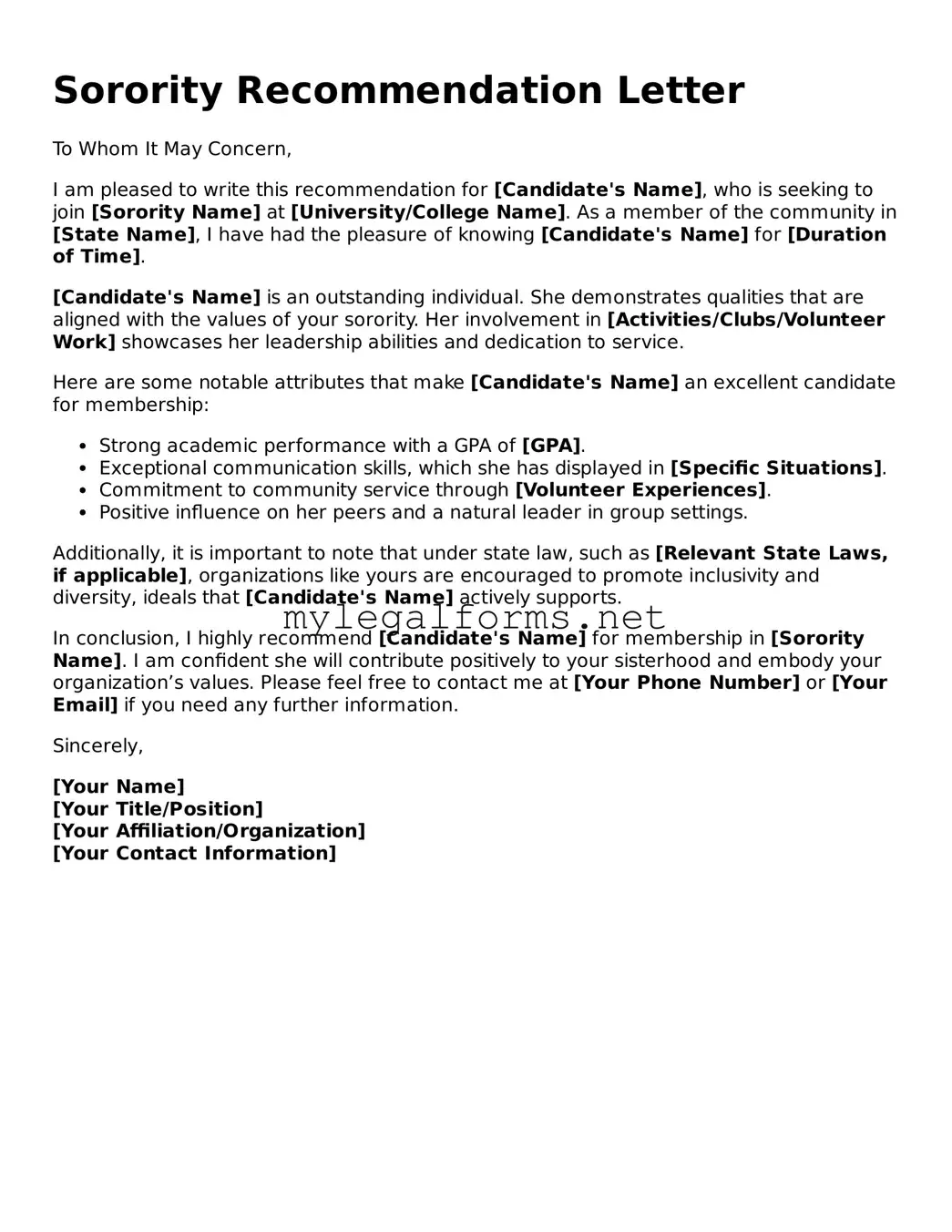Attorney-Approved Sorority Recommendation Letter Form
The Sorority Recommendation Letter form is a document used to support a potential new member's application to a sorority. This form typically includes personal information about the applicant, along with insights from individuals who can attest to her character and qualifications. Completing this form can significantly enhance a candidate's chances of receiving an invitation to join a sorority chapter.
Launch Sorority Recommendation Letter Editor

Attorney-Approved Sorority Recommendation Letter Form
Launch Sorority Recommendation Letter Editor

Launch Sorority Recommendation Letter Editor
or
⇓ PDF Form
Complete the form at your pace — fast
Finish your Sorority Recommendation Letter online and download the final version.